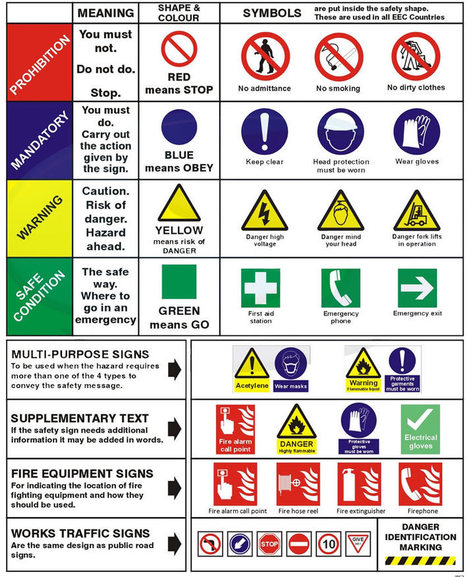The Right To Know Law isn’t a single law. It’s a group of laws. These laws cover a variety of rights. From your rights during police encounters to workplace safety to personal information. And they’re typically different for every state.
However, there are some laws – such as the right to know workplace laws – that don’t deviate much. Mostly because the federal government stepped in with minimum regulations. OSHA also governs some of the right to know laws and regulations in the workplace, so they’re a bit more uniform.
Right To Know Law & Police
More recently, we’ve been hearing about the Right To Know Act in NY. This law took place in 2018.
The New York Police Department ordered 10,000,000 business cards. Officers needed to hand out these cards to people they stopped. The cards include the officer’s name, ranks, and other important identifiable information.
In New York, it’s required for them to hand out these cards under the new Right To Know Act in most circumstances.
The officer(s) must identify themselves, the reason for your interaction, and give you a business card without you having to ask for it if:
- They suspect you were involved in a criminal activity
- You’re frisked or searched – including your home, vehicle, possessions, or your person
- You are being questioned as a survivor or witness to a crime
Unlawful Searches In NY
The addition to the law also included updates to consent to search.
An officer previously only had to have a hunch that someone on the street was doing something illegal, such as possessing drugs. The officer could then stop and search someone based on that hunch. This argument of “reasonable suspicion or probable cause” came up in Whren v United States.
Obviously this “hunch” method has plenty of room for human bias, error, and moral grey-area of plausible deniability. And that can lead to racial, sexual, or other inequalities and intentional targeting from law enforcement.
With this new addition though, the officer no longer has a right to search someone based on suspicion. This applies to your home, your car, or anywhere else. Unless they get your voluntary, knowing, and intelligent consent. They can, however, stop to question you. In which case, they need to give you their card.
This means that officers can no longer search people in New York unless they:
- Ask for your consent
- The officer informs you that a search won’t be conducted without your consent
- Checks to make sure you understand
- You give your consent
With New York having made these drastic changes a few years ago, other states are now following suit. For example, Pennsylvania is moving to make it similar to NY’s. The same is true with California, where police brutality is a serious issue as well.
Now it’s important to remember that this right to know law does not apply to every state. In fact, it doesn’t apply in most states.
However, if this is something you want to see more of, there are plenty of petitions, senators, and other avenues that you can pursue to make sure your voice and your opinions on this are heard.
In The Workplace
Right To Know in the workplace is very different from those that involve the police.
This set of laws mandates that employers share scientific information with their workers and local communities about the chemicals found in the workplace.
This information needs to include the following for every chemical the business uses to provide goods and services:
- The toxicity
- Characteristics
- Materials
- Any exposure risks that may occur from working in or around that establishment
- Chemical releases into the environment
- Long-term exposure hazards
- Waste management procedures
The Right To Know Law in this circumstance places emphasis on maintaining and dispensing information.
This set of laws is broken into four broad categories of obligation:
- Compiling and retaining relevant records
- Disclosure of any available information to the workers, community members, or organizations on any potential is potentially hazardous materials and processes used
- Providing adequate training to employees working with potentially dangerous materials
- Disclosing information on sudden health risks
This information must be presented even if it’s not formally requested. You may have seen the posters that most workplaces have about The Right To Know Law. Most places also usually have decent sized books that you can go through at your own leisure.
If we’re boring enough to call that leisure, anyway.
The Federal Hazardous Substance Labeling Act also provides workers with basic information on hazardous materials. Including descriptions of the nature of the hazard and instructions for safe handling and medical treatment in case of exposure.
Public Record
What is considered public record under the Right To Know Law depends largely on what state you live in. For example, in some states, your name and address are public record. And in most states, if you win the lottery, your name, age, and address will become public record.
Even if it wasn’t before.
In other states, public record laws are much stricter and protect more of your information. There is no uniform answer as to what is public record. However, when we’re talking about public records such as state records, agency records, or governmental records – that’s a different topic.
The Right To Know Law also collides with the Freedom of Information Act (FOIA.) Which is a topic that we’ve already covered in a different article because it’s a very different set of laws. The Right To Know Law covers personal information, while FOIA covers government information.
But your information – depending – may be covered only partially because of FOIA.
What Is Protected Under The Right To Know Law?
The same is true here.
Your name, address, and age may be protected. Or it may not be. The same is true for certain information about other people, agencies, or any state entity that operates within your state’s Right To Know Law.
In order to get a clearer picture of what your state’s right to know laws are, you have to do your research on your particular state – or the state that you want to request information in. But because there are so many laws under this one law, you need to get specific about what question you want answers to.



